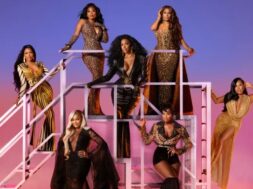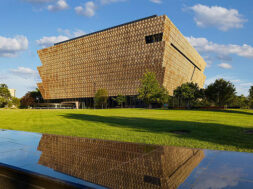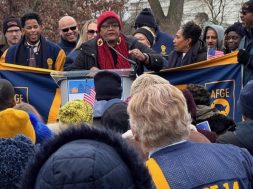
Black Women No Longer Have Their Essence

Essence was founded in 1968 by Ed Lewis, Clarence Smith, Cecil Hollingworth, Jonathan Blount, and Denise Clark. Their initial circulation began at around 50,000 per month and now is estimated to be over 1 million per month. It is a monthly publication focusing on Black women between the ages of 18 and 49. Essence was bought out by Time Inc. in 2005, thus no longer being a Black owned publication (similar to B.E.T.).
The impetus behind the founding of Essence was to show a side of Black women that was never portrayed in the mainstream media. Images of Black women were controlled by white media outlets that had little to no knowledge of the Black community. Most of these images were very stereotypical and lacking substance.
There were unique issues relevant to Black women that other publications were totally ignorant of. Black women could not wear the same makeup that white women could—there are differences in skin type. Black women have unique issues when it comes to styling their hair—there were no mainstream publications that dealt with these differences.
So, initially, Essence met a very real need and provided a venue for Black women to share common experiences with each other (remember, this was pre-internet days when you didn’t have all the instant communication we have today).
Essence portrayed Black women in the most positive of lights. They made Black women feel proud to be Black and female! That was then, this is now.
Now, Essence is just another Hollywood rag (focused on Black women), sprinkled with a few substantive, positive stories; but, that is no longer their focus!
I looked at the cover picture for the past year and each cover featured an entertainer. Isn’t this the same stereotyping that we have accused white media of—showing Blacks as only entertainers? There is nothing wrong with having entertainers on the cover, but is that all there is to offer Black women?
I can guarantee that most Black women have never heard of Sadie Tanner Mossell Alexander, Alicia Jillian Hardy, or Katie Washington.
When I went on Essence Music Festival’s website and looked at the speakers listed under “Empowerment”I was stunned and quite embarrassed!
The Essence Music Festival is the nation’s largest annual gathering of Black musical talent in the U.S. It is a 3 day event filled with cultural celebrations, empowerment panels, and nightly entertainment by some of the biggest names in music. It is held in New Orleans, LA every July. The event attracts more than 200,000 people.
One of the speakers listed under “Empowerment” is “NeNe” Leakes. She is one of the main characters of the reality TV show, “The Real Housewives of Atlanta. The show is about the private lives of women who are dating or is married to successful men in the Atlanta area.
Leakes is a foul mouth, angry, nasty person on the show and from media accounts in real life also. She is also the founder of Twisted Hearts Foundation (which focuses on domestic violence against women). They were forced to close down last year after being suspected of money laundering. Leakes is also a former stripper.
One of the other speakers listed under “Empowerment” is Shaunie O’Neal, former wife of N.B.A. great Shaquille O’Neal. She is the executive producer of “Basketball Wives.” The women’s only claim to fame is that they either dated or were married to a pro basketball player. They have nor had no identity outside the athletes they were involved with.
Both shows portray women in the worst light imaginable—using high profile men to get fame and fortune. These women then try to exploit their former relationships to get their own TV show. They are paid to tell the most intimate details of their former relationships.
Essence, could you please tell me how these two women fit into your mission of uplifting the Black woman? What can they teach women about “empowerment?” Is this really the image of Black women Essence wants to promote? There are many women who could fit into your mission statement.
By the way, Sadie Tanner Mossell Alexander was the first Black woman to earn a Ph.D. in America (1921). Alicia Jillian Hardy is the first Black woman to earn a Ph.D from M.I.T. in mechanical engineering (2007). Katie Washington, a 21 year old, became the first Black female valedictorian in the history of Notre Dame University (2010). She gave a wonderful speech (http://www.youtube.com/watch?v=VaouUZrn2vI).
One would think that Ms. Hardy and Washington deserved to be on the cover for their achievements; and most assuredly know a little something about empowerment! Oh, I forgot, they are not entertainers, so they don’t qualify.
In times past, Black women used to look forward to reading Essence Magazine for upliftment. That was then, this is now. Black women no longer have the Essence of their mother and grandmother.
In Essence, there is no essence!
Raynard Jackson is president & CEO of Raynard Jackson & Associates, LLC., a D.C.-public relations/government affairs firm. He is also a contributing editor for ExcellStyle Magazine (www.excellstyle.com) & U.S. Africa Magazine (www.usafricaonline.com).







